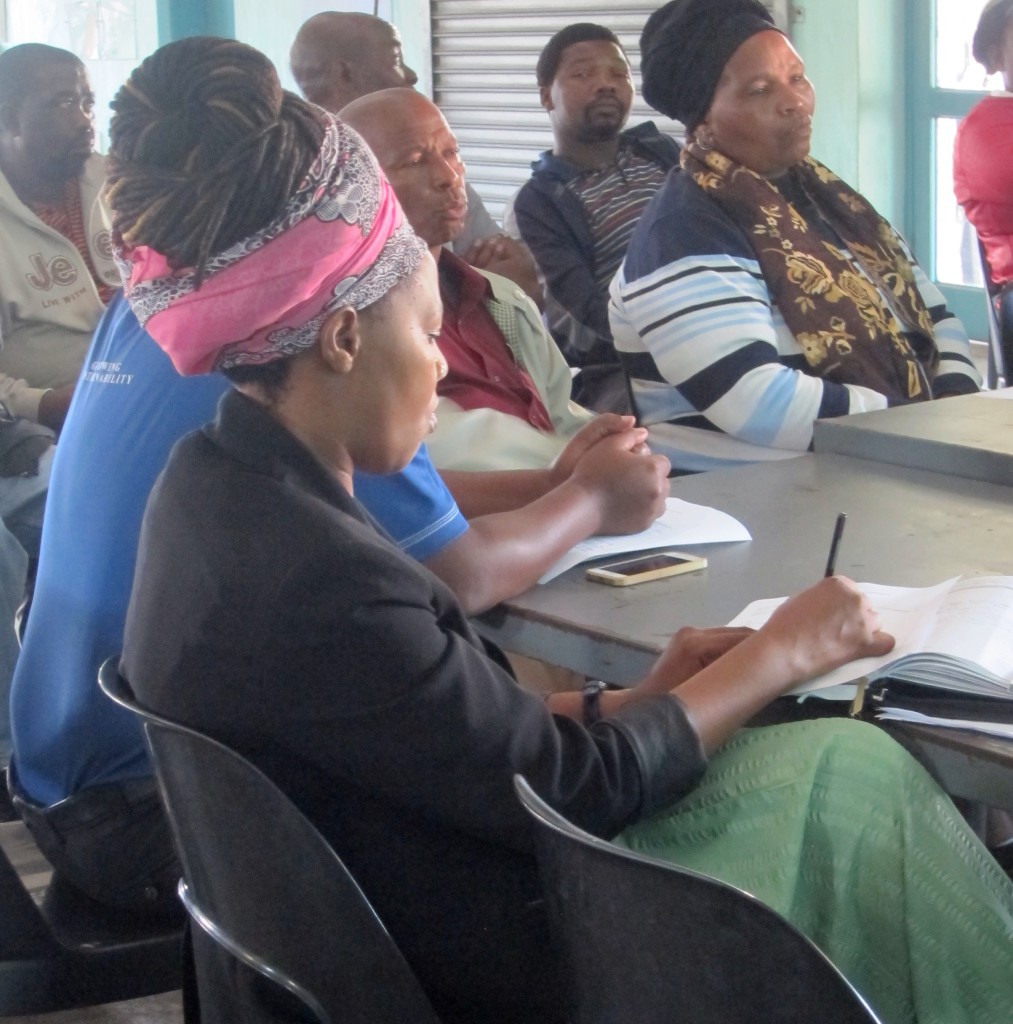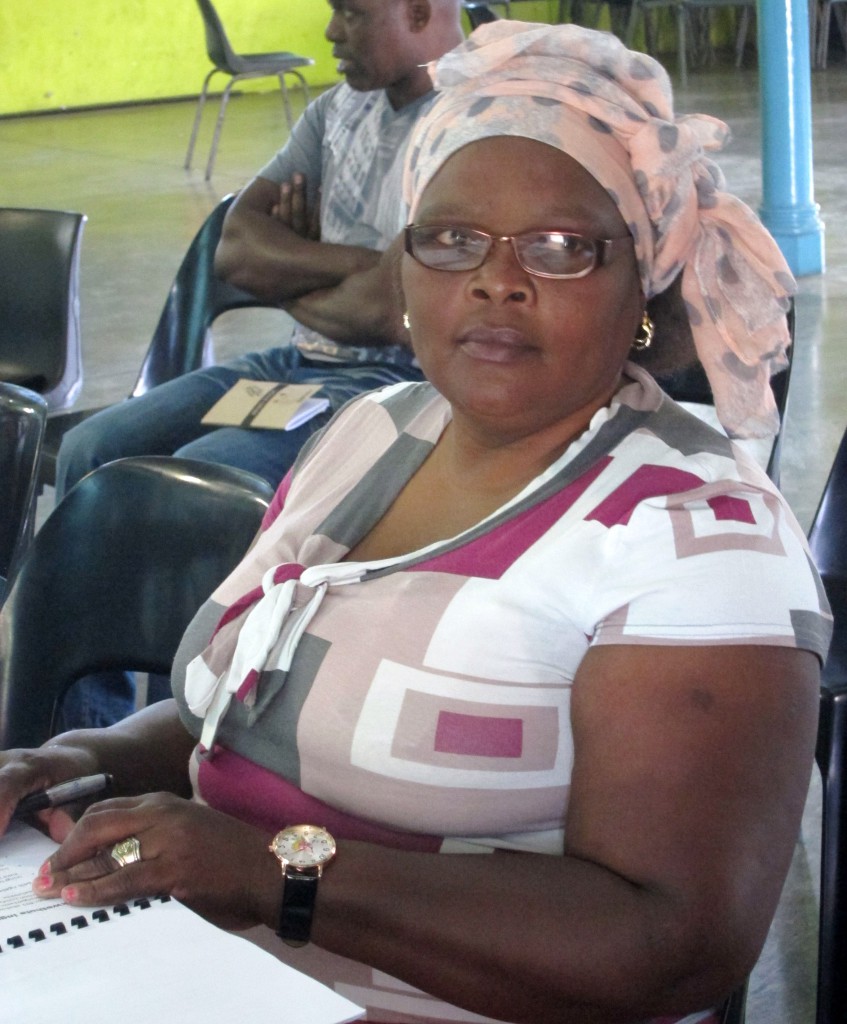Tasmi Quazi
On 19 October 2016, trader leaders from three informal market districts that have been a part of the Kanyenathi Project presented their infrastructure needs to key city officials responsible for developing and managing informal trade, namely the Business Support Unit (BSU). This was a milestone for both parties who have had a history of a conflictual and erratic relationship marked by the selective and superficial application of consultation at best and more commonly, where punitive action or resistance has been the norm.

Trader leaders who were democratically elected to make the presentations on behalf of the respective districts came prepared with an Agenda and a consolidated presentation shaped by several feedback sessions with their constituencies. The meeting was chaired by a trader, and City officials and traders were given equal opportunity to comment and respond. The leaders had undergone prior training to absorb the presentation material and some chose to stick to the rehearsed script while others spoke to the key points in their own way. Zone leaders from each of the districts were also in attendance to engage in the discussions.

Although certain topics became emotive during discussions, the purpose and momentum of the meeting was sustained with a clear sense of the way forward. The BSU committed to sharing the findings with the relevant departments responsible for addressing the challenges related to basic services such as access to water, malfunctioning toilets, public lighting and electricity. A senior official optimistically identified these as “quick win” solutions which he believed could be addressed by calling an inter-departmental meeting.

The senior official further added that the research findings would be shared with current planning initiatives and development projects that are underway, namely the inner-city Local Area Plan (LAP) and integrated rapid public transport network (IRPTN). This is so that the identified infrastructure needs of informal workers can be incorporated into these.
With regards to intervening in Bester however, which is one of the three informal economy districts of the Kanyenathi Project, the officials said that they cannot commit to intervening because the land in which it is located falls within the provincial government jurisdiction. This response sparked an impassioned reaction from traders from the other two districts, pressing the need for infrastructure upgrades in Bester. One trader made a compelling case by saying the following:
“Don’t disown Bester Traders. In the past, these traders used to pay permits to the municipality. The foundations for the existing containers and toilets were built by the municipality, so you can’t say that the case of Bester lies with the Province”
Another trader echoed the latter sentiments adding that the reason given for the reluctance to engage with Bester is a tactical response used whenever it suits a specific government department for not intervening, as he added,
“For us, on the ground, you are all government and we expect our needs to be addressed irrespective of where you sit”.
The level of support shown by traders outside of Bester shows new levels of advocacy among traders that are increasingly being vocal about the universal infrastructure challenges affecting informal workers. The officials finally resolved to say that the local area manager will communicate with the relevant provincial department to address the challenges at the Bester node.

In conclusion, the meeting was a milestone and represents a major change in engagement for both parties. Numerous officials complain about the lack of organisation and united voice among informal traders. Concurrently, informal workers have reported that when consultation meetings are held by officials, these are often selective and superficial where the decisions that affect their workplaces are merely communicated with them without their input or where their inputs may sometimes be solicited, they are rarely applied.
Furthermore, the City meetings are often conducted in English, which inhibits effective communication between the two parties because the majority of the informal workers are first language isiZulu or isiXhosa speakers. What has set the Kanyenathi project apart is that informal workers proactively called and chaired the meeting with city officials, set the agenda and presented their researched infrastructure needs in their own language.


